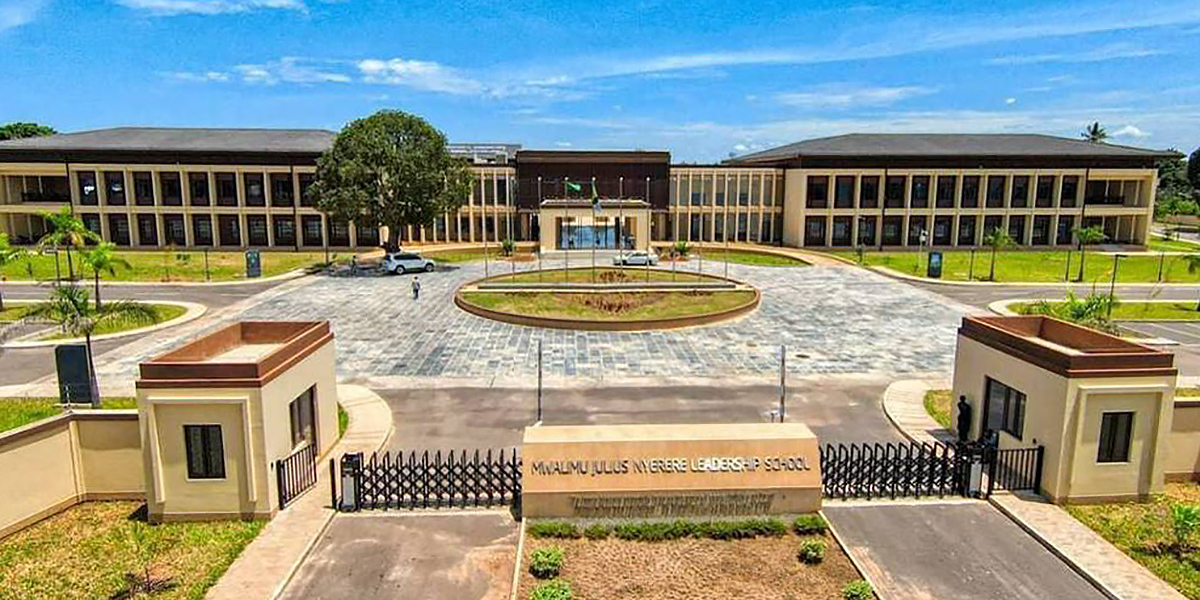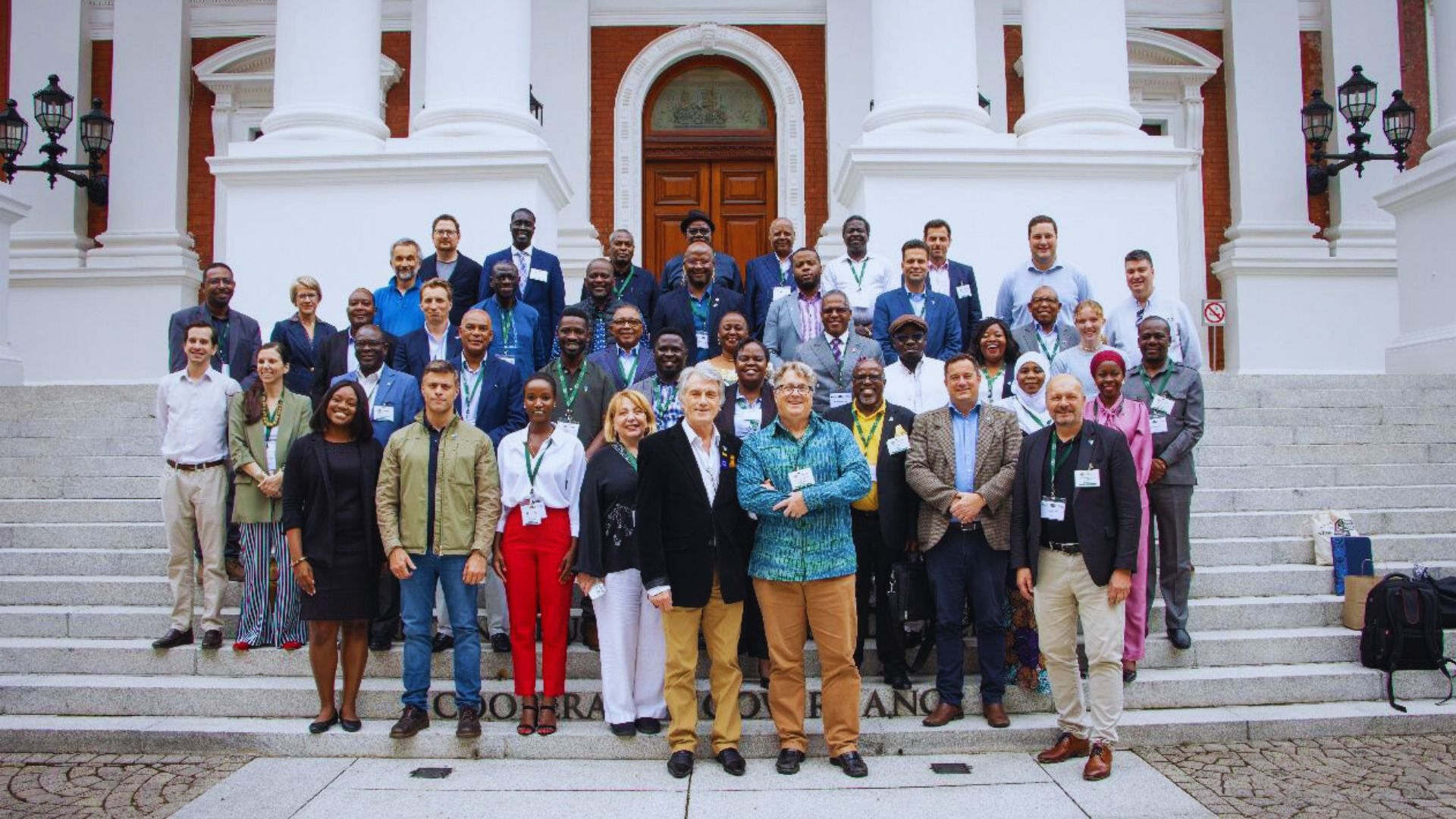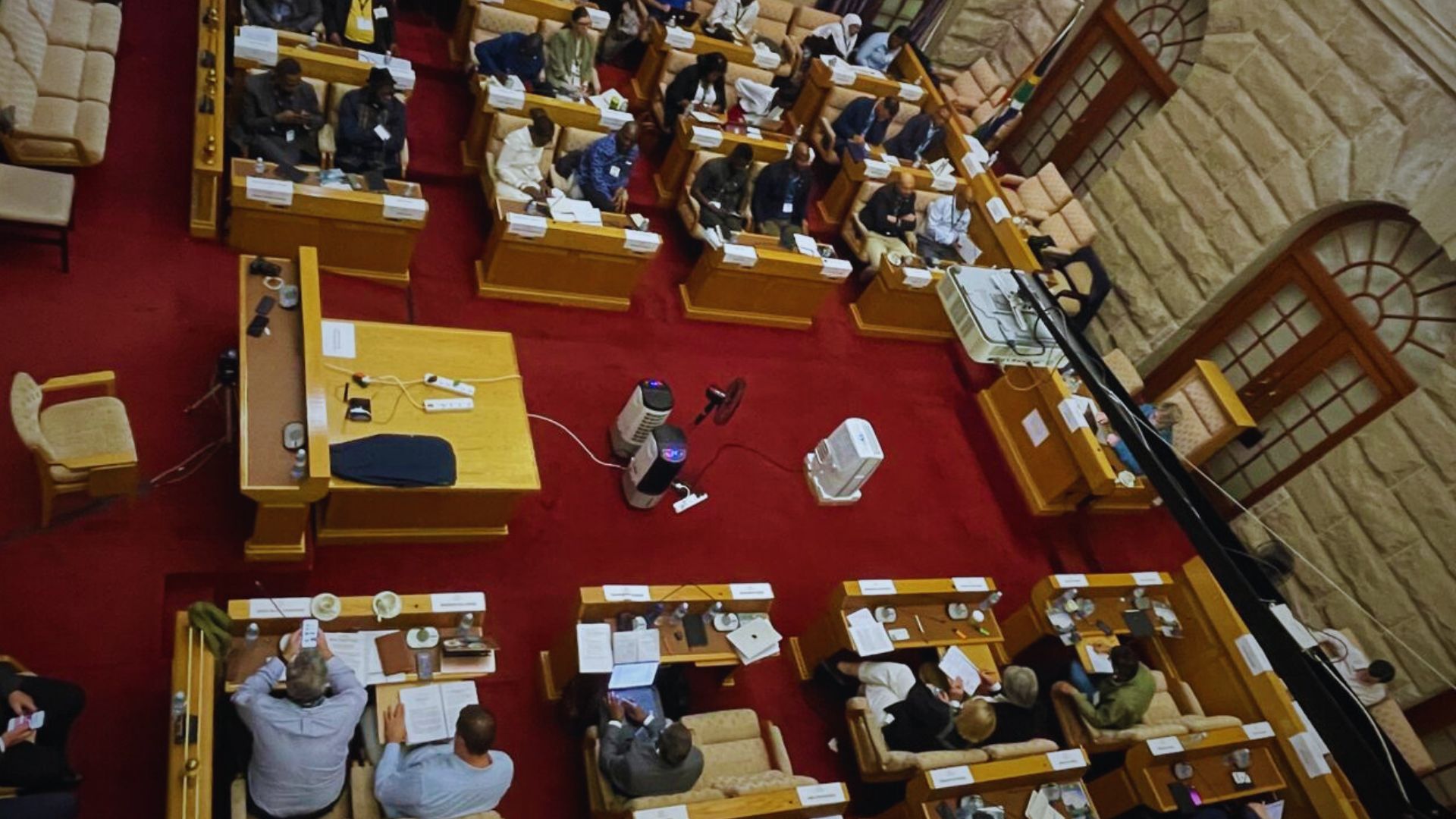Three developments show there is a clear and present danger to democracy in Africa as autocrats use “elections” to cling to power.
The first of these can be seen playing out in southern Africa as popular unhappiness with decades of lost growth and development rises.
Seven parties – the Popular Movement for the Liberation of Angola (MPLA), the Botswana Democratic Party (BDP), the Front for the Liberation of Mozambique (Frelimo), Namibia’s Swapo Party, Tanzania’s Chama Cha Mapinduzi (CCM, or Revolutionary Party), the ANC in South Africa, and Zimbabwe’s Zanu-PF – met under the banner of the Former Liberation Movements (FLM) organisation at Victoria Falls on 18 March 2024.
Made up of members of the Southern African Development Community (SADC), the FLM is a reincarnation of the Frontline States grouping which banded together to fight apartheid.
But this organisation is not about advancing the interests of the 216 million people who live within their borders. Instead, it seeks to develop strategies for liberation movements to hold on to political power – parties that have already been in uninterrupted power for a combined 324 years.
According to an ANC press statement in this regard, the FLM is a “crucial platform to advance the consolidation of a progressive front in the southern Africa region and the continent as a whole, more so as counter-revolutionary forces seek to divide and fragment the progressive front through splinter political forces, including funding NGOs as fronts to achieve such ends”.
This description conveniently ignores decades of poor governance and blames voter anger at the FLMs on external actors.
Opposition parties – an essential ingredient of democracy – are demonised as “counter-revolutionaries” manipulated by external actors.
It is inconceivable to them that opposition parties are wholly indigenous to their countries and have strong support among most of the people.
The FLM has been set up to monitor and analyse geostrategic trends and domestic and global challenges to their rule while generating plans to support one another.
The ANC’s statement on the 2024 Vic Falls summit concludes: “As we approach the national and provincial elections, we are confident that the neo-colonial forces that seek to destabilise the liberation movements will not succeed.
“As the ANC, we are confident of an outright electoral victory because the people who will defend the movement are the motive forces and beneficiaries for change, the masses of our people.”
Political school
 The Mwalimu Julius Nyerere Leadership School in Tanzania. (Photo: Supplied)
The Mwalimu Julius Nyerere Leadership School in Tanzania. (Photo: Supplied)
The second occurrence is the creation of the Mwalimu Julius Nyerere Leadership School, referred to in the above FLM statement as the “apex political school for all parties member [sic] to the FLM”.
The setting up in 2022 of this political training school in Tanzania by the Chinese Communist Party – in collaboration with southern Africa’s liberation moments – should be viewed with great concern, and not just by China’s external continental competitors.
Democrats everywhere, including in Africa, should catch a wake-up.
The Nyerere Leadership School, supported by China’s Central Party School, has been established to provide ideological training and networking to cadres from six of the seven abovementioned southern African liberation parties (Botswana was not included at the outset) which have remained in power since independence.
This concern about China’s role does not stem from Sinophobia.
The new wave of Chinese interest in Africa since 2000 has brought much positive change, investing in business and building infrastructure, and in so doing helping to change the perception of the continent as a problem to be solved to one that is a business prospect.
But this party school does not seek to pass on the lessons of economic reform, bureaucratic efficiency or anti-corruption strategies, all of which China has some considerable experience. None of these messages is particularly interesting to the attendees in any event.
Instead, it is a cynical, geopolitical move that comes with clear strings and seeks to create leverage. The Chinese conditionality, to use a “Western” term, is not in this case better governance (perhaps the opposite, in fact) but debt – lots of it.
Chinese lending to African countries has risen from $138.7-million to $170.1-billion over the past 20 years.
In sub-Saharan Africa, China’s share of total external public debt rose from less than 2% in 2005 to nearly 10 times that percentage in 2021.
It’s a pretty useful lever to ensure African support for China per se and its wider goals, and a firm down payment on the region’s mineral and energy resources.
Two-thirds of Africans polled by Afrobarometer consistently prefer democracy to other forms of government, including 43% in South Africa, 47% of Angolans, 75% in Zimbabwe, 79% of Tanzanians, 49% Mozambicans and 55%% of those polled in Namibia.
The longer you have tasted one-party rule, the more you appreciate democracy.
As the Ugandan scholar of Chinese, Paul Nantulya, notes, the Mandarin term for this mutual help is weiwen, translated as “stability maintenance” or “regime survival” under CCP rule.
As Nantulya, writing for the African Center for Strategic Studies, concludes, “the CCP’s governance model is emerging as one of the manoeuvres being employed to rig multiparty systems to cling to power.”
Democratic recession
 The Platform for African Democrats (PAD) met in the Parliamentary Precinct in Cape Town on 22-23 March 2024, bringing together over 50 political and civil society leaders from across the African continent, but including the former president of Ukraine and leader of the Orange Revolution, Viktor Yushchenko, and the Venezuelan leader Leopoldo Lopez. (Photo: Supplied)
The Platform for African Democrats (PAD) met in the Parliamentary Precinct in Cape Town on 22-23 March 2024, bringing together over 50 political and civil society leaders from across the African continent, but including the former president of Ukraine and leader of the Orange Revolution, Viktor Yushchenko, and the Venezuelan leader Leopoldo Lopez. (Photo: Supplied)
The third development is that 2024 has been described as “the year of elections” and as “the ultimate election year”. But this does not mean it will be the year of democracy. On the contrary, it may well become the year of the authoritarian.
Twenty years ago, it was not easy being an autocrat. No longer could they easily turn to violent methods and blunt weapons to keep people under their thumb, as Stalin had done in sending perhaps as many as 10 million of his countrymen and women to their deaths in the gulags, through executions and engineered famines; or as Mao had done with his Great Leap Forward and Cultural Revolution which together cost as many as 35 million lives.
Right-wing dictatorships ended with the collapse of the Metapolitefsi in Greece and the death of Franco in Spain in the wake of events in Lisbon, followed by junta after junta in Latin America. Then came the collapse of the East Bloc governments in Eastern Europe after 1989.
After the end of the Cold War, there was a surge in democracies as the number of countries classified as “free” increased from 56 out of 165 in 1987 to a record 81 of the world’s 191 nations qualified as free, the highest number recorded in the then 25-year history of the survey.
With the end of the Cold War, many of the repressive regimes had lost their principal sponsor with the end of the Soviet Union and succumbed to their people’s wishes for greater openness.
With the advent of social media, for a while, the cost of tyranny was raised to unprecedented levels.
But autocrats quickly learnt to adapt, keeping the shell of democracy in place after hollowing it out by removing free and open political contestation.
As Freedom House put it, 2021 “marked the 15th consecutive year of decline in global freedom. The countries experiencing deterioration outnumbered those with improvements by the largest margin recorded since the negative trend began in 2006. The long democratic recession is deepening.”
This year, eight of the world’s 10 most populous nations (Bangladesh, Brazil, India, United States, Indonesia, Pakistan, Russia and Mexico) have voted or will be voting.
Across Africa, elections are expected – or were scheduled – in Mauritania, Mali, Mauritius, Botswana, Chad, South Sudan, Rwanda, Mozambique, Ghana, Algeria, Togo, Namibia, Guinea-Bissau, Comoros, Tunisia, Senegal, Somaliland, Madagascar and, of course, on 29 May in South Africa.
Of this number, five fall into the “not free” category as defined by Freedom House, nine are partly free, and five – Ghana, Botswana, Mauritius, Namibia and South Africa – fall into the “free” category.
In sum, 74% of the 2024 elections in Africa will be held in countries considered partly or not free.
The Malian election has already been postponed indefinitely although in Senegal, opposition candidate Bassirou Diomaye Faye is set to become president after his main rival conceded defeat on Tuesday, 26 March.
‘Authoritarian democrats’
What are the methods that are being used by authoritarians to stay in power?
“For my friends, everything,” said Peru’s General Óscar Benavides, “for my enemies, the law.” The general served twice as Peru’s president, the second time (1933-39) during a period termed one of “authoritarian fascism”.
The methods by which autocratic regimes stay in power remind us of Benavides’ statement. They may, indeed, be characterised as oxymoronic “authoritarian democrats” in the manner in which they use public institutions in undemocratic ways to turn affairs to their advantage, from removing rivals from running in elections to overturning acceptable practices.
A variety of tactics are used to retain power and the illusion of democracy: local NGOs can be pressured through tax and other inspections and audits, with stringent registration procedures, and through clampdowns on foreign donor flows, while government-sponsored NGOs (known appropriately as Gongos in Russia) proliferate.
These are countries where criticism is seen as treason; where diversity of views is seen mostly as a weakness and seldom as a strength.
Leaders who discourage the study and critical scrutiny of their own situations so obviously lack a sense of irony, given that such questioning helped not only to achieve liberation from colonial authorities but also has been at the root of innovation in developed economies.
Such regimes prefer party lists and appointments, not direct elections. They target media outlets and independent journalists (sometimes fatally, as has been the case in Russia), while again ensuring they are front and centre of the local news outlets.
They play to the need for stability while buttering up supporters with contracts, social grants and pensions, and jobs – a recipe for widespread corruption and stagnation.
The concept of a “development state” or “state as the agency for development” is the preferred language. State employment is kept high, along with loyalties.
In South Africa, where unemployment hovers above 40%, the state is now the largest formal sector employer, at around one-quarter of the workforce.
And when it comes to elections, this is more sophisticated than simply beating up or imprisoning opponents, or even fiddling with election results.
Techniques include gerrymandering districts; tampering with voters’ rolls where the voting dead can number into the millions to boost ruling party numbers; delving into voting records (most infamously through the Maisanta digital database in Venezuela); redistribution of the spoils in the form of contracts and goods to supporters; strangulation of resources for opponents, including through intimidation of funders; clamping down on foreign funding to NGOs, and control of media assets.
The political economy is shaped by the needs of power and patronage.
As Zimbabwe’s Tendai Biti reminds us, “Power retention fuels the use of the state as an arena for redistribution.” Identity is similarly weaponised as a tool of loyalty and privilege.
Equally, “poverty and ignorance are weaponised through the use of handouts, through food and social grants, in which dependency is used as a malign force by the rulers,” reminds Biti, who served as the Minister of Finance in the unity government in Zimbabwe.
And they have their external benefactors and agents of power retention, including China and Russia, where state agencies, violence and access to state resources are routine tools of “governance” – governance for the party and by the party, not the people.
Elections are a necessity to maintain legitimacy, and so they become a target of the state apparatus.
As William Dobson has noted about Venezuela under Hugo Chávez, this begets a “unique paradox: with each election, the country loses more of its democracy”.
Increasing dangers
There are increasing dangers in the temptation of authoritarianism, not least in governance, accountability, transparency and human rights.
But this is not a huge leap in attitude for a liberation movement steeped in faux communist ideology – the leaders all have extensive private business interests – and a struggle where the ends routinely justified the means, and living in a region surrounded by other similarly minded movements from Angola through Namibia and Zimbabwe to Mozambique and Tanzania, all still firmly ensconced in power since independence.
Most have until now operated less through outright fear and violence than through more sophisticated means; a combination of mafia-like economic schemes, control of the media and weakening of institutions, a careful mixture of “calibrated coercion” involving the application of some fear along with the distribution of rents, intimidation and propaganda, elaborate ideological schemes and what Sergei Guriev and Daniel Triesman describe as other “loyalty rituals”, from bribery to self-censorship.
These methods include the use of offshore banks and institutions to both protect their assets and bribe others to their cause. While they may (largely) stay within the bounds of the law and violence, they routinely ignore the spirit of the law.
Critical lessons
The rise of autocrats and these “authoritarian democrats” can be resisted, but this demands learning some critical, recent lessons:
First, the West is not going to come to the assistance of democrats, in Africa as elsewhere. They are too concerned with fighting their own battles, and not losing ground to China, Russia and others.
Stability and strategic interests trump human rights.
Second, the liberation movements might be weak at delivering services and better economic choices and outcomes for their citizens, but they are very good at staying in power and relying on each other for assistance.
This can only be strengthened with the involvement of other BRICS members, the bulk of which are authoritarian states.
And third, the responsibility to win elections has to fall on opposition movements themselves.
While incumbents will try to steal elections in many ways, oppositions must act and avoid being passive bystanders. They need their own narrative to connect with voters, unify their movements and adopt best practices from the playbook for democrats.
Important steps include voter registration drives and targeted advertising based on polling outcomes, a messaging strategy to deal with fake news, as well as the more mundane training (and funding) of polling agents, assiduous checking of voters’ rolls (especially in removing dead voters), and the mobilisation of democrats across regions given the centrality of African monitoring and support.
Citizens, not external actors, have to win the vote between elections.
Leaders of opposition parties and civil society movements thus need to develop a “democracy playbook” for elections, since oppositions cannot rely on the justice of running against the government.
There is much at stake, more so than at any time since the end of the Cold War.
But as Viktor Yushchenko, the former president of Ukraine who led that country’s Orange Revolution in 2004 which set it on its path towards Europe rather than remain under Russia’s wing, said: “You can’t have freedom without democracy.” DM
Dr Greg Mills heads The Brenthurst Foundation, which co-hosted the inaugural Platform for African Democrats at Parliament last week, bringing together more than 50 African opposition figures.




 The Platform for African Democrats (PAD) met in the Parliamentary Precinct in Cape Town on 22-23 March 2024, bringing together over 50 political and civil society leaders,from across the African continent, but including the former president of Ukraine and leader of the Orange Revolution, Viktor Yushchenko, and the Venezuelan leader Leopoldo Lopez. (Photo: Supplied)
The Platform for African Democrats (PAD) met in the Parliamentary Precinct in Cape Town on 22-23 March 2024, bringing together over 50 political and civil society leaders,from across the African continent, but including the former president of Ukraine and leader of the Orange Revolution, Viktor Yushchenko, and the Venezuelan leader Leopoldo Lopez. (Photo: Supplied)